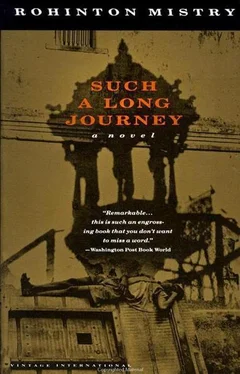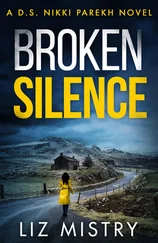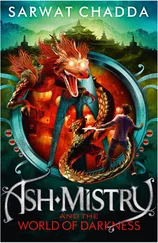Gustad knew his fear of Crawford Market had its origins in his grandmother’s warnings about butchers. ‘Never argue with a goaswalla, ’ she would caution. ‘If he loses his temper, then bhup! he will stick you with his knife. Won’t stop to even think about it.’ Then, in milder tones, less terror-striking but more pedagogic, she revealed the underpinnings from whence this wise dictum rose. ‘Remember, the goaswalla ’s whole life, his training, his occupation, is about butchering. Second nature. Bismillah, he says, that is all, and the knife descends.’
If she was teased about it, Grandma would staunchly claim to have witnessed a situation where a goaswalla had gone bhup! with his knife into flesh of the human sort. Gustad had relished the gruesome tale in those days, and when he began shopping at Crawford Market, he would remember her words with a nervous amusement. He never could feel quite at ease in that place.
He tried to select a chicken for Roshan’s birthday. It was hard for him to tell under all those feathers, as the shopkeeper held up bird after bird for inspection. ‘Look at this one, seth, good one, this. See under wing. Spread it, spread it, does not hurt the murgi, not to worry. See, poke here. How thick, how much meat.’ He did this with one chicken after another, holding its legs and dangling it upside-down, hefting it to emphasize the weight.
Gustad watched, thoroughly confused, squeezing and prodding to pretend he knew what he was doing. But each chicken was very much like the next. When he finally approved one, it was the vocal protestations of the bird, seemingly louder than the others, that made him decide. He would have been the first to admit his inexperience with poultry. The number of times he had been able to afford chicken for his family in the last twenty years, he could count on the fingertips of one hand without using up the digits. Chicken was definitely not his area of expertise.
But beef was a different matter. Beef was Gustad’s speciality. Years ago, his college friend, Malcolm Saldanha, had taught him all about cows and buffaloes. It was around the same time that Malcolm had helped him hide the furniture from the clutches of the vulturous bankruptcy bailiff.
The loss of the bookstore had turned Gustad’s father into a broken and dispirited man, no longer interested in those weekly expeditions to Crawford Market. When his beloved books and his business disappeared, his appetite was also misplaced, somewhere in the labyrinth of legal proceedings. Gustad worried deeply as his father visibly shrank. He did the best he could now as breadwinner, with his meagre income from private tuitions to schoolchildren. But under Malcolm’s advice and guidance, the rupees were stretched further than he had imagined possible.
Malcolm was tall and exceedingly fair-skinned for a Goan. He was fond of explaining his colour by telling about the blood of Portuguese colonizers that had mingled with the local stuff. He had thick red lips and slick, gleaming black hair, always parted on the left, brushed back. Malcolm’s father, whom Malcolm closely resembled in looks and talents, taught piano and violin, and prepared his students for the examinations periodically held in Bombay by the Royal School of Music and Trinity College. Malcolm’s mother played first violin with the Bombay Chamber Orchestra, and his elder brother, the oboe. Malcolm played the piano for the college choir’s practices and performances. He was going to be a professional musician, he said, but his father insisted on the BA to round out his education.
Gustad admired Malcolm, even slightly envied him, wishing he, too, could play some instrument. For all the music that had filled his home in happier times — his father’s huge radiogram in its dark cabinet of polished seesum, the records lining row upon row of shelves — there was not a single musical instrument in the house. The closest Gustad came to one was in a photograph of his mother as a child, posing with her mandolin. The photograph intrigued him, and sometimes, her eyes far away, she would describe the mandolin for Gustad, telling him about the songs she used to play, in her gentle, accepting voice which lacked the necessary force to influence things in the Noble household.
Though he was the odd one out, Gustad was always welcomed at Malcolm’s home. Sometimes, Mr. Saldanha performed a piece for solo violin, or Malcolm accompanied his father, and Gustad forgot his troubles for a while. In those extremely lean days, when every anna, every paisa counted, Malcolm the musician taught him to eat beef and mitigate the strain on his pocket-book. ‘Lucky for us,’ Malcolm always said, ‘that we are minorities in a nation of Hindus. Let them eat pulses and grams and beans, spiced with their stinky asafoetida — what they call hing. Let them fart their lives away. The modernized Hindus eat mutton. Or chicken, if they want to be more fashionable. But we will get our protein from their sacred cow.’ At other times he would say, mimicking their economics professor, ‘Law of supply and demand, always remember. That’s the key. Keeps down the price of beef. And it is healthier because it is holier.’
On Sunday mornings, Gustad would set off with Malcolm for Crawford Market, but their first stop was always the church where Malcolm attended Mass. Gustad went in with him, dipping his fingers in the font of holy water and crossing himself, imitating his friend closely, to fit in and not give offence to anyone.
The first time, Gustad was quite intrigued by the church and its rituals, so different from what went on in the fire-temple. But he was on his guard, conditioned as he had been from childhood to resist the call of other faiths. All religions were equal, he was taught; nevertheless, one had to remain true to one’s own because religions were not like garment styles that could be changed at whim or to follow fashion. His parents had been painstaking on this point, conversion and apostasy being as rife as it was, and rooted in the very history of the land.
So Gustad quickly decided that while the music was good and the glittering icons and sumptuous vestments were highly impressive, he preferred the sense of peaceful mystery and individual serenity that prevailed in the fire-temple. Sometimes it made him wonder, though, if Malcolm was not making an amateurish, half-hearted attempt at proselytism.
Whatever Malcolm the musician’s intentions, over the course of several Sunday mornings he presented a prelude on Catholicism before launching into the theme of beef and variations thereon. Christianity came to India over nineteen hundred years ago, when Apostle Thomas landed on the Malabar coast amongst fishermen, said Malcolm. ‘Long before you Parsis came in the seventh century from Persia,’ he teased, ‘running away from the Muslims.’
‘That may be,’ rejoined Gustad, ‘but our prophet Zarathustra lived more than fifteen hundred years before your Son of God was even born; a thousand years before the Buddha; two hundred years before Moses. And do you know how much Zoroastrianism influenced Judaism, Christianity, and Islam?’
‘OK man, OK!’ Malcolm laughed. ‘I give up.’ Since Crawford Market was only a short walk from the church, they were soon in the great hall of meat. There, Gustad received an overview about beef: its nutritional value, the best ways to cook it, the choicest parts, and, most importantly, the butchers in Crawford Market who sold the choicest parts.
The following Sunday, Malcolm continued the story of Christianity. Saint Thomas was approached courteously by Hindu holy men, by brahmins, sadhus and acharyas, who wanted to know who he was and why he was loitering around these parts. The meeting took place at the sea-shore. Saint Thomas revealed his name, then said, Do me a favour, cup your palms, immerse them under water, and fling water to the sky. They did so, and the water splashed upwards and fell back into the sea. Saint Thomas asked, Can your God keep the water from falling back? What nonsense, Mister Thomas, said the Hindu holy men, it is the law of gravity, the law of Brahma, Vishnu and Shiva, so it must fall back.
Читать дальше












